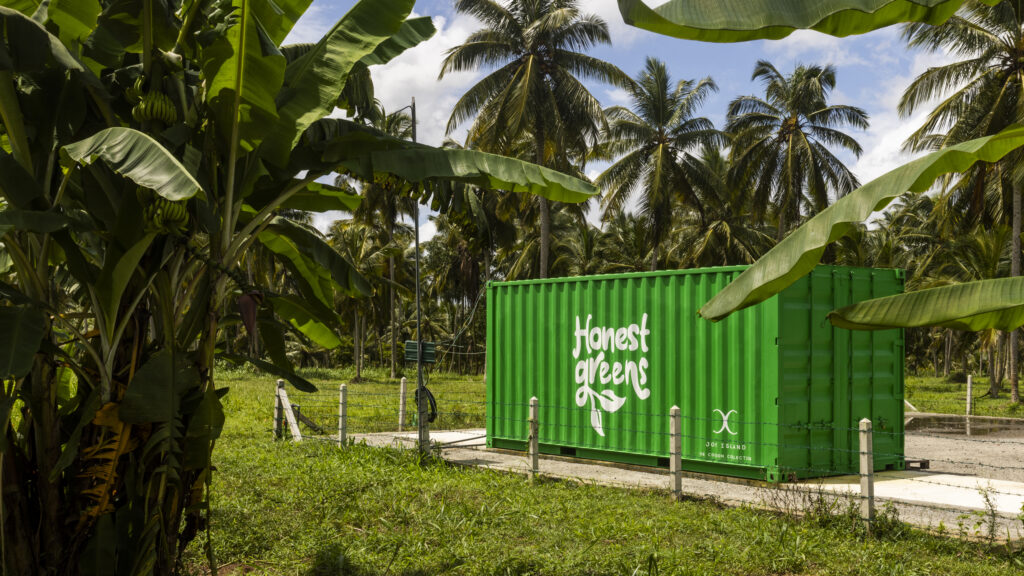The Case for Vertical Farms
What is Container Farming?
Container farming is a modern, innovative approach to agriculture that involves growing plants inside repurposed shipping containers. These containers are transformed into controlled, climate-resilient environments equipped with advanced technologies such as hydroponics, LED lighting, and automated climate control systems. This method allows for the cultivation of a wide variety of crops regardless of external weather conditions.
The Role of Hotels in Promoting Sustainability
The Maldives, an idyllic archipelago renowned for its crystal-clear waters, pristine beaches, and luxurious resorts, attracts millions of tourists each year. As a premier destination, the Maldive has set high standards for hospitality and guest experiences. However, this tropical paradise faces significant challenges related to sustainability and food security. With limited arable land and a heavy reliance on imported food, the Maldives grapples with high food costs, supply chain vulnerabilities, and environmental impact due to transportation.
Hotels and resorts in the Maldives are in a unique position to lead the charge towards sustainability. As key players in the tourism industry, they have the opportunity and responsibility to adopt practices that minimize environmental impact and promote local resources. One innovative solution that aligns perfectly with these goals is container farming.
Problem Solving Focus: Why Container Farms?
Reduced dependence on imports
The Maldives relies heavily on imported food to meet the demands of its population and the millions of tourists who visit annually. This dependence on imports presents several challenges, including high costs, supply chain vulnerabilities, and fluctuating availability. These issues can impact the quality and consistency of food offerings in hotels, affecting guest satisfaction and operational efficiency.
Fresh, Locally Grown Produce
Container farms will enable hotels to grow fresh, pesticide-free produce on-site, resulting in superior quality and taste. This improvement can significantly enhance the dining experience for guests and become a unique selling point for the hotel. Currently, much of the produce imported by resorts comes from distant countries such as Australia (7,242 km) and the UAE (3,063 km). The long transportation distances increase the risk of spoilage. By growing produce directly on the resort’s premises, hotels can ensure fresher produce, offering guests the best in flavor and nutritional value.
Cost Savings
While there are initial setup costs for container farms, growing produce in-house can lead to significant long-term cost savings. Hotels will reduce expenses associated with purchasing and transporting food from external suppliers.
Adaptable to Climate Change
Given the adverse effects of climate change on traditional agriculture, vertical farms housed within containers provide a controlled environment unaffected by extreme weather conditions, ensuring consistent crop yield all year round.
Sustainability Goals
Investing in container farms directly supports a resort’s sustainability goals by reducing its carbon footprint and promoting eco-friendly practices. By growing produce on-site, resorts minimize the need for long-distance transportation, cutting down on greenhouse gas emissions.Additionally, container farms use less water and fewer resources compared to traditional farming methods, further enhancing resource efficiency. This commitment to sustainability not only benefits the environment but also appeals to eco-conscious guests, enhancing the resort’s reputation as a responsible and forward-thinking establishment.

